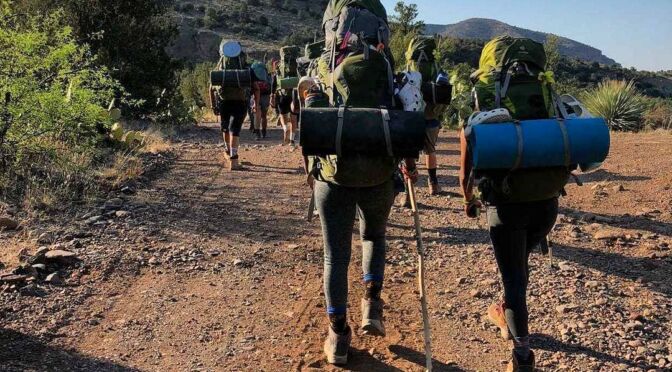
Before we dive into my experience building a gap year program, you should know how I found my way into designing outdoor programs. Long before I began my career as an outdoor educator and program director, experiential education changed my path. I, like many high school students, was trying to figure out what my life would look like. I knew I needed a change and when an admissions representative from Chewonki visited my school and talked about the Maine Coast Semester, I was scared but interested. I ultimately decided to apply and spent the first semester of my junior year on the coast of Maine, living sustainably and with intention in a small group. One of our weekends was spent completing a solo experience. Just ourselves and the bare essentials alone in the forest. I watched an entire tide cycle, journaled, and went to bed with the sun. After the excitement of doing something that I thought I couldn’t do wore off, I realized that I felt more confident and more myself when I was immersed in nature. I came away from that experience convinced about the importance of time in the outdoors, time spent in close community with others, and opportunities that can provide a change in perspective. In many cases, exactly the opposite of what many students have experienced this year as a result of the pandemic.
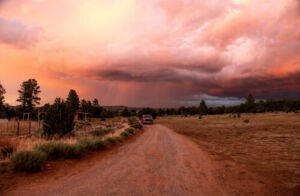 I knew that this year more than ever, many students are craving the connection, the time spent outdoors, and the opportunity to gain new perspectives. Cottonwood Gulch excels at small group, outdoor experiences that lend themselves well to gaining new perspective and we have been at it since 1926. Our organization has learned over many years how to achieve those goals for younger students through our summer programs for teens and partnerships with schools and we love doing the work. But we were missing the opportunity to connect with older students. Starting a gap year program was a logical step, though it felt like a big undertaking, especially in a year with so many unknowns. The decision to start a new program, especially one as big as a gap year, was not one that we took lightly and we dedicated a lot of energy to determining if we felt we had something special to offer. We recognized that there are already a lot of excellent opportunities out there for gap years and therefore, it was of utmost importance to consider what we could offer that would be unique.
I knew that this year more than ever, many students are craving the connection, the time spent outdoors, and the opportunity to gain new perspectives. Cottonwood Gulch excels at small group, outdoor experiences that lend themselves well to gaining new perspective and we have been at it since 1926. Our organization has learned over many years how to achieve those goals for younger students through our summer programs for teens and partnerships with schools and we love doing the work. But we were missing the opportunity to connect with older students. Starting a gap year program was a logical step, though it felt like a big undertaking, especially in a year with so many unknowns. The decision to start a new program, especially one as big as a gap year, was not one that we took lightly and we dedicated a lot of energy to determining if we felt we had something special to offer. We recognized that there are already a lot of excellent opportunities out there for gap years and therefore, it was of utmost importance to consider what we could offer that would be unique.
Cottonwood Gulch is deeply committed to impactful outdoor learning adventures that foster personal growth, strengthen community, and inspire stewardship of the natural world in all programs, so those became the pillars of the Semester in the Southwest.
Pillars of Semester in the Southwest
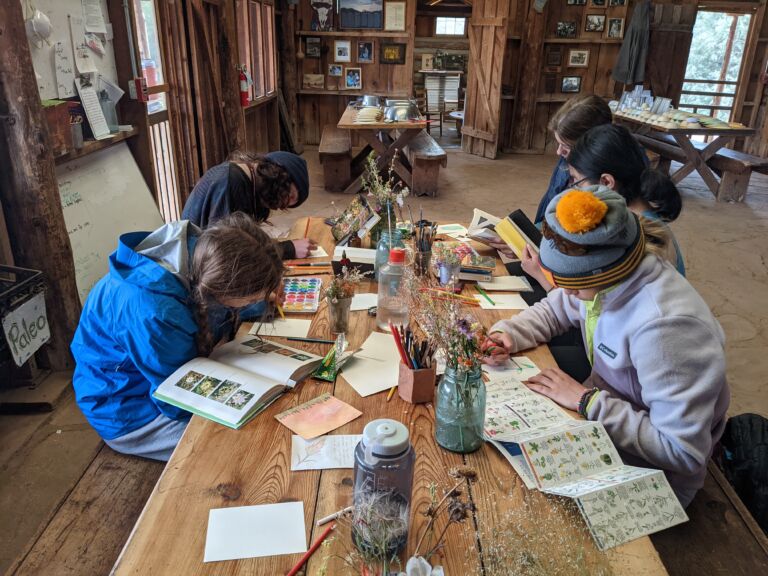
Personal Growth:
Although it was less of an intentional choice and more just an important fact of bringing a group together, students will experience the personal challenges that come with living in a small, intentional, outdoor community. Additionally, they will develop their technical skills including increasing comfort with extended wilderness travel, risk management thinking, and group leadership in the outdoors. Students will also grow through developing and pursuing an independent study project over the course of the semester. To tie the independent projects together, we selected a theme, and this year our theme is water. Students will have the freedom and support to design projects in fields like geology, hydrology, visual arts, and Southwest history. The semester will wrap up with presentations of the projects to the group and, if appropriate, a wider audience. The research itself is of course important; however, we believe the process of project-based learning is equally important as it develops skills essential to life-long success such as planning, communication, and presentation.
Strengthen Community:
We leveraged our history of having groups that become small, tight-knit communities traveling around the Southwest and our 550-acre Basecamp to put together a program with a unique mix of “big W” Wilderness of deserts and mountains, frontcountry campgrounds, out of the way towns, and everything in between. We believe that every person having a role to play in a community and every person contributing to the group every day is an important piece to existing successfully in the community. No matter where the group is, they will seek to strengthen their own community through being intentional, contributing members. They will also seek to strengthen communities they visit through responsible resource use, lending a helping hand, and sharing their projects when appropriate.
Inspire Stewardship of the Natural World:
We believe that time immersed in the natural world goes a long way towards inspiring stewardship; however, for the Semester in the Southwest, we wanted to take it to the next level. The group will dive into the first-hand experience of how climate change is impacting the Southwestern United States and spend time reading, discussing, and reflecting on their relationship with the natural world. The group will discuss their own positions in the narrative of environmentalism in the context of the reading we do and the landscapes we visit. The discussions and reading will be informed by travel through landscapes like rivers where native fish have been re-established, forests that have dried and burned, and canyons drowned by dams. The group will have a chance to see how native peoples have engaged and continue to engage with the natural world. Additionally, Leave No Trace ethics will be integrated into the group’s travel.
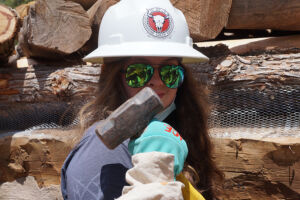 After considering the unique perspective and outlook of our organization, centered around our three pillars of personal growth, strengthen community, and inspire stewardship of the natural world, it is time for you to consider yours! If you are considering starting a gap year program, start by answering the questions below:
After considering the unique perspective and outlook of our organization, centered around our three pillars of personal growth, strengthen community, and inspire stewardship of the natural world, it is time for you to consider yours! If you are considering starting a gap year program, start by answering the questions below:
- If you have an existing program of some kind (summer camp, school, after-school program, etc.), what makes your program unique? What are strengths you can leverage?
- What are the goals you are trying to achieve?
- What ages and/or demographic groups do you want to serve?
- What do you want the outcomes to be for the students?
- How will you utilize the strengths of your staff and support them in carrying out your vision?
- Once you have a draft outline, who can you ask for feedback?
- What are potential logistical challenges with weather, facilities, staff, permits, resources, etc? How will you manage those?
- Does your organization have the capacity (vehicles, permits, staff, cabins, eating spaces, etc.) to take on this kind of project?
- What is a reasonable timeline for your organization to go from idea to the first day of the program?
- What will your funding model look like?
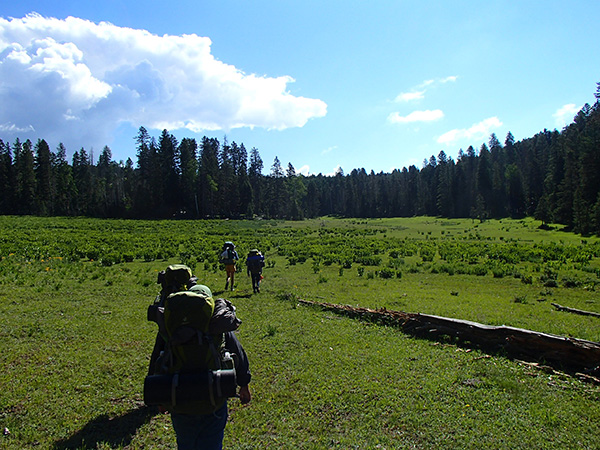
My sincere hope is that students who complete the Cottonwood Gulch Semester in the Southwest have the same type of life-changing experience that I was fortunate enough to have at Chewonki. This year has been incredibly challenging for everyone and I believe that what I came to understand about the importance of time in the outdoors, time spent in close community with others, and opportunities that can provide a change in perspective are even more essential than they were then. In my mind, the more programs there are for students to choose from and find the perfect fit, the better.
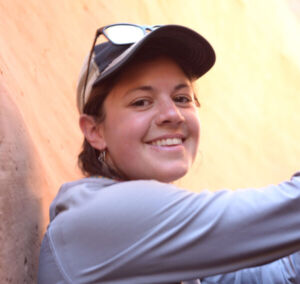 Tori Baker-White joined The Gulch community shortly after receiving her BA in Environmental Studies and Sociology at Bates College. While teaching elementary school in Gallup, she earned her MA in Elementary Education. Tori spent 4 years teaching elementary school and seven seasons leading expeditions as staff at Cottonwood Gulch. When she was ready to take a break from teaching in the classroom, she joined the year-round team to help bring trekkers to The Gulch. Tori loves to play outside and spends time doing everything from skiing and climbing to backpacking and sea kayaking to trail running and mountain biking and she loves to share her passion and enjoyment of the outdoors with others. She also holds a WEMT Certification.
Tori Baker-White joined The Gulch community shortly after receiving her BA in Environmental Studies and Sociology at Bates College. While teaching elementary school in Gallup, she earned her MA in Elementary Education. Tori spent 4 years teaching elementary school and seven seasons leading expeditions as staff at Cottonwood Gulch. When she was ready to take a break from teaching in the classroom, she joined the year-round team to help bring trekkers to The Gulch. Tori loves to play outside and spends time doing everything from skiing and climbing to backpacking and sea kayaking to trail running and mountain biking and she loves to share her passion and enjoyment of the outdoors with others. She also holds a WEMT Certification.
*All images in this post courtesy of Cottonwood Gulch.
Categories
- Advising (7)
- Alumni (2)
- Career (5)
- College & University (15)
- Communication (17)
- DEIA (4)
- Fair Trade Learning (3)
- Finances (12)
- Gap Year Benefits (69)
- Growth & Development (9)
- Leadership (6)
- Learning & Reflection (56)
- Mental Health (4)
- Planning (61)
- Professional Development (5)
- Research (4)
- Risk Management (3)
- Safety (5)
- Service-Learning (10)
- Standards & Accreditation (1)
- Sustainability (6)
- Voices Project (20)
